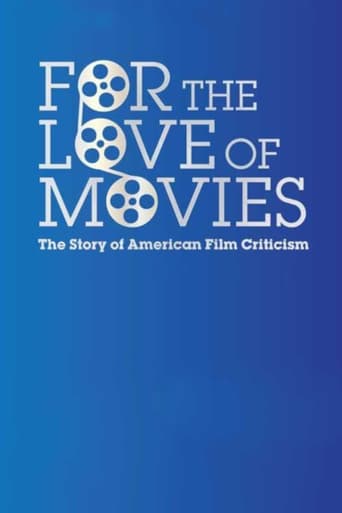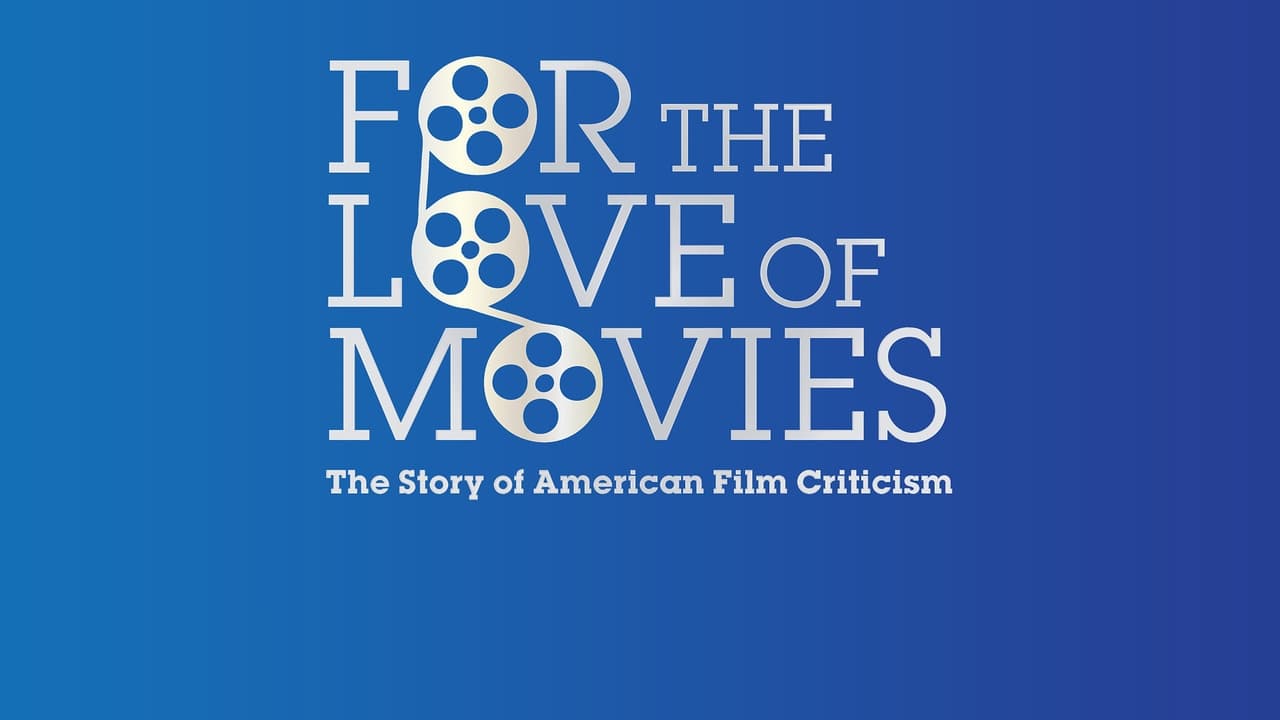Sarah Everett
There is a lot to be said for the film criticism industry. There is a rich history and a multitude of viewpoints of its impact on modern day cinema. This documentary interviews various critics on the history and evolution of their industry in hopes of understanding its decline as a whole. Each critic lends their part to giving the background of film criticism and each gives more insight to the issue which the internet has caused among print critics. Unfortunately, the editing of this documentary makes it extremely dry and unentertaining if you're not already interested in the topic. The cuts are random and in between history lessons unrelated stories are told from critics. Perhaps these were put there to break up the action, but all they really do is distract the audience. The music is not matched well at all with the film and often plays a distracting role in the overall effect of the movie. I will not be watching this one again, and that's a shame. Film critics are an important part of the movie industry, but I have no interest in learning more about them if all their films are like this.
gavin6942
I love this examination of the rise and fall of the professional film critic... while today we have Roger Ebert, Pauline Kael and A. O. Scott, in the beginning this was just not so. This documentary shows how the critics (notably Frank Woods) pushed how film was more "subdued" in its acting than theater and how Pauline Kael helped get Martin Scorsese noticed.I loved the bit on "Two Thousand Maniacs" from Elvis Mitchell, which briefly touched on the b-movie sensibility. Indeed, not all films can be reviewed by the same meter.I also liked how they used "Amelie" as a example of difference, with one critic loving it and another saying it was nothing but a "cartoon" with "no human dimensions". This is quite the difference.And, of course, one much touch on the effect of the Internet Movie Database and the Internet in general on film criticism. Is it democracy on the rise, or a race to the bottom? I can see it both ways.
moonspinner55
Witty, long-overdue documentary narrated by Patricia Clarkson chronicling the colorful history of movie criticism, from the silent-era days of Frank E. Woods (who wound up collaborating with D.W. Griffith on the screenplay for his "Birth of a Nation") and Vachel Lindsay to the prolific internet bloggers of today. Most enjoyable and enlightening are the comments from newspaper and magazine critics still employed in the 21st century (apparently a rare lot, as professional film criticism has becomes less essential due to the internet, thereby leaving seasoned and even promising cinephiles without paying jobs). There are some stray but no less intriguing details dropped here (Robert Sherwood became the first celebrity critic, while Kate Cameron of the 1930s was the first newspaper writer to use the star-rating system), though the juicier stories--such as the Andrew Sarris-Pauline Kael grudge-match which raged throughout the 1970s--are the ones most likely to interest non-rabid movie buffs. Certainly the core audience for this material won't be vast, yet it is an entertaining assemblage of journalistic talents and film clips, well-assembled by Gerald Peary and with plenty of humorous commentary. *** from ****
ilovedolby
I recently viewed Gerald Peary's "For the Love of Movies: The Story of American Film Criticism," at the Lake Placid Film Forum. It drew a small crowd. It wasn't aided by the seasonable weather, or its matinée schedule. But the audience knew there was something genuine about it. For the first time, to my knowledge, a critic has taken their discussion to the screen in order to prove the influence of film critique on cinema culture. The result was a fascinating look back to the beginning of the medium up to the modern age of internet based critics. The film gives us a brief history of film review, from the early writings of Robert Sherwood, to the debating Andrew Sarris and Pauline Kael. It further goes into the age of recognized television personalities like Roger Ebert and Gene Siskel leading up to the current realm where printed media is on the way out and people look to the web for reviews. The film asks its audience the question of why do we need film critics? Wesley Morris of the Boston Globe argues that they "expand and inform the reader about what is more than just a movie." Stuart Kalwans of The Nation further explains that "criticism is about your relationship to the work, the world and the shifting ways of that world." Each of these opinions is correct. However, a mentor of mine who recently passed away left these words—"I believe in writing and the power of art to transform consciousness." His name was Donald Kearns, a local resident of Plattsburgh NY who loved film and literature. It is my belief that this is the true nature of film critique, as is any critical opinion: to allow the reader to see another perspective. The film clearly illustrates that many of the original recognized film critics, like Sarris, were devout film lovers. The art of cinema set them free and provided for intellectual stimulation that encouraged their discussions. One of the reasons that I enjoyed this film so much was because of my own interest in film review. Several years ago I wrote for a local news-magazine near my hometown. I wrote a review for every movie that I saw theatrically, although only a handful were ever published. But it allowed me, a lonely film buff, the opportunity to reach out to others and create a discussion. In so doing, I met the most extraordinary people: film lovers, writers, exhibitors, musicians, professors and people from all walks of life. And every one of them had something to comment on, whether they liked the movies or not. Moreover, "For the Love of Movies" expanded my own knowledge not only of the review process, but of influential theories by Sarris and Kael. Their collected works influenced filmmakers of their generation and the next. But as we head father into the future, and critique jobs become eliminated by online clip-quotes, movie marketing campaigns only emphasize what is big, loud and aggressive. As such, we lose something so valuable—the genuine voice of those who love film. There is debate between filmmakers and critics as some movies reviewed are poorly received. Filmmakers may ask the question to critics, do you think you can make a better movie? Maybe they can. Maybe they cannot. The truth is that it does not matter. Critics are connoisseurs of film. They do not have to go and produce something better because that's not their job. My advice to filmmakers is to take it all in stride. The process of making a movie is like crafting an art form. Not everyone will appreciate your perspective. After all, a person can be a wine lover and have never made their own bottle. And how many people do you know who love cars but have no idea what is going on beneath the hood. Alarmingly enough, over 28 major film critics for printed journals have lost their jobs in recent years. The situation is not helped by the current economic times, as well as the push to websites. Some formerly employed critics are now heading to the web. However, the internet has given rise to its own breed—James Berardinelli is a perfect example. He is a web based film critic who can actually write a fine review whether you agree with him or not. But there are so many others who only comment on what is flashy or the current fads in the market. Therefore, how can their opinions be justified if they cannot provide a backdrop to compare a film against?My advice to the average reader seeking movie recommendations is trust your best judgment. It's easy to see the hacks and the ones who actually care about film. Even with the shift from print media to online sources, critics will go on. There's always going to be a different perspective out there that deserves its recognition. But who will be the next film critic, online or in print, to truly change the way films are perceived? We'll just have to wait and see. In the meantime, see "For the Love of Movies" and get the other perspective that is being shut out from our society.


 AD
AD

